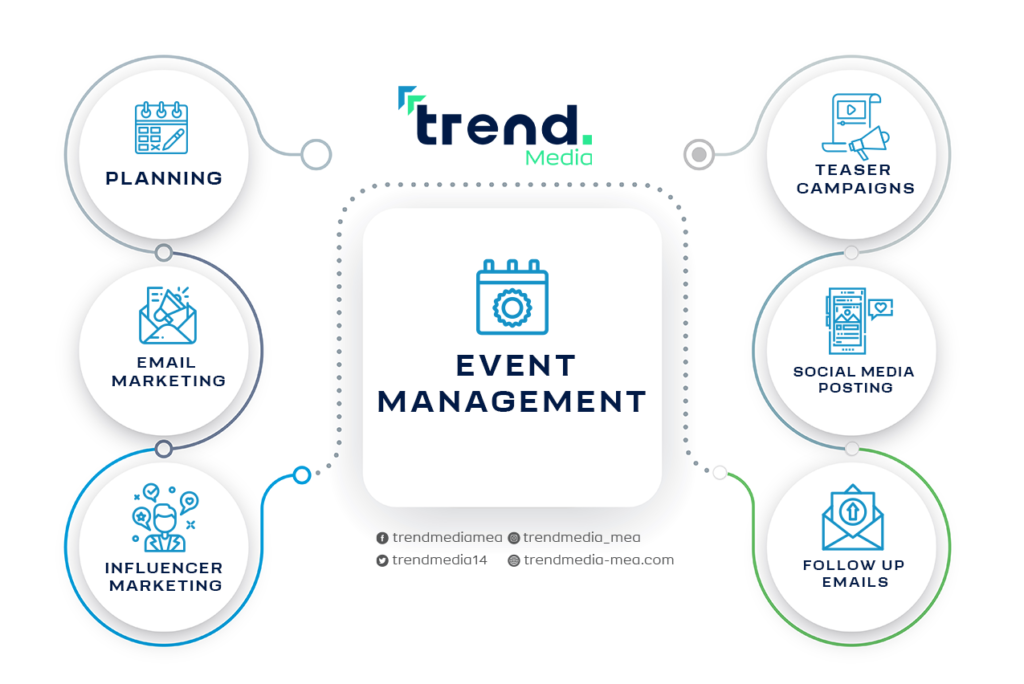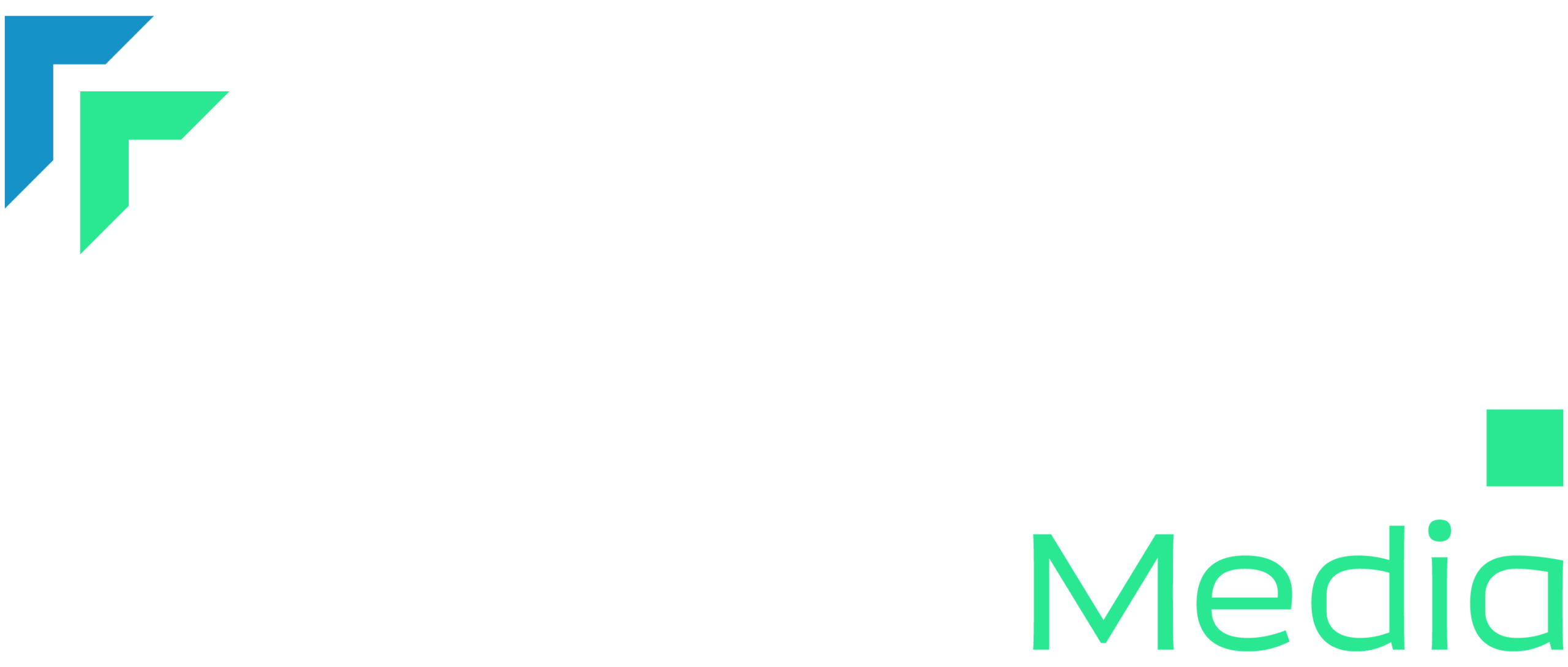When Event Management Meets Marketing

It’s a fact that the harmony between event management and marketing has become increasingly vital. Successful events are not just about perfect planning and excellent execution anymore, they are also about creating lasting impressions and experiences that stay with the target audience.
In this article, we will explore the relationship between managing events and marketing and how they work together to achieve business objectives. Also, we will list some of the top marketing techniques used to have a successful event.
What’s the Relationship between Event Management and Marketing?
First things first, do you know what’s event management? Well, the term refers to the process of planning, organizing, and executing events such as conferences, trade shows, summits, and product launches. It involves various tasks such as budgeting, place selection, organizing, management, and coordination with other parties.
Now, let’s delve into the relationship between event management and marketing. They both go hand in hand as they aim to achieve business objectives together.
While event management focuses on the operational aspects of organizing an event, marketing plays a crucial role in promoting the event to the target audience. How? By effectively integrating marketing strategies into event planning. This way allows businesses to maximize their reach and impact throughout the event.
But what are these marketing techniques? You will find your answer in the next section.
The Marketing Techniques Used with Events
The Marketing techniques used in event management are many, some of them are used before the event, others are used during the event, and other techniques are used after the event.

The techniques used before the event are:
- Social Media Campaigns
- Email Campaigns
- Influencer Campaigns
- Teaser Campaigns
During the event, the techniques vary between:
- Live updates
- Experiential marketing
- Interactive booths
- Engaging presentations
Whereas, the marketing techniques used after the event are:
- Testimonials
- Behind-the-scenes content
- Surveys
- Follow up emails
Are you ready to get into the details of these Marketing techniques used in Event Management? Buckle up and let’s start our journey of knowing what’s used before, during, and after the events.
What Are The Marketing Techniques Used Before The Event?
Creating a buzz before the event is a crucial phase that sets the tone for its success as it increases the level of excitement among the target audience, generates interest, and encourages early registrations. These techniques are used through:
- Social Media Campaigns
Utilizing social media platforms such as Facebook, Twitter, and Instagram to create engaging content, share event updates, share some videos, and promote early bird registration discounts is one of the most used event management marketing techniques that help to build anticipation and reach a wider audience.
- Email Campaigns
Sending out targeted email campaigns to previous attendees if there were rounds before the upcoming one, industry leaders, and potential attendees is an important thing.
These emails can include event highlights, speaker announcements, and exclusive offers to excite recipients to register early.
- Teaser Campaigns
Creating teaser campaigns leading up to the event can generate social media buzz and anticipation among potential attendees.
Teasing campaigns can be done through teaser videos, sneak peeks of event highlights, or countdown posts on social media platforms. These campaigns can create curiosity and motivate people to register and be a part of the event.

- Influencer Campaigns
Influencer marketing is a powerful tool for maximizing the event’s visibility and attracting more attendees. Collaborating with popular influencers in the industry to promote the event on their different social media platforms can help reach a wider audience.
Also, offering incentives such as free tickets or exclusive discounts to influencers’ followers can encourage more attendees to come and generate excitement
It’s worth noting that the influencers’ campaign is one of the most successful event management and marketing techniques used nowadays.
Now let’s move to the marketing techniques used during the events.
The Marketing Techniques Used During The Events
There is a variety of marketing approaches used during the event itself to maximize its impact which are:
- Sharing live updates
It allows attendees to share their experiences in real time and generate buzz among their followers. This can be done through live streaming, live tweeting, or posting live photos and videos.
- Experiential marketing
It’s another powerful strategy to engage attendees and create a memorable event. This involves creating interactive experiences that allow participants to directly interact with the brand or product being promoted. This can include virtual reality experiences, or interactive games and activities.
By providing a unique and memorable experience through interaction with the product, this technique can leave a lasting impression on attendees and generate positive word-of-mouth promotion.
- Interactive booths
The interactive booths are also a popular way in event management and marketing approaches to engage attendees and leave a lasting impression. These booths can include interactive displays, touchscreens, or virtual reality experiences that allow attendees to learn more about the brand or product in a fun and engaging way.
- Engaging Presentations
These presentations can include dynamic visuals, engaging storytelling, and other elements that keep attendees engaged and interested. The focus of these presentations is to leave a lasting impression on attendees which is an important thing for any event with good management following the latest marketing techniques to achieve.
After listing the before and during event marketing ways, let’s move to the techniques used after the event.

Marketing Approaches Used After the Event
The marketing and event management techniques continue even after the event in several ways. This approach is used so you can hear the feedback from your attendees and gather valuable insights for future improvements.
Now let’s list some of the after-event techniques:
- Attendees Testimonials
Testimonials from attendees can be collected by sending them a form to fill out and sharing it on social media platforms and websites to showcase the positive experiences and satisfaction of past attendees.
- Behind-the-scenes content
The behind-the-scenes content such as photos or videos can be shared on social media to give attendees a glimpse into the planning and execution of the event, creating a sense of transparency and authenticity. This can also help build anticipation for future events and attract new attendees.
- Follow-up emails
The follow-up emails can be used to thank attendees for their participation and provide them with any additional information related to the event. This personal touch can leave a positive impression and encourage attendees to attend future events or recommend them to others.
By actively seeking feedback and utilizing it to enhance future events, brands can ensure a continuous cycle of improvement and deliver even more impactful experiences in the future.
All In All
Both event management and marketing are used together to achieve successful events by combining strategic planning with effective promotional efforts. This way, businesses can create memorable experiences that not only meet their objectives but also leave a positive impact on their target audience.
Don’t forget that Trend Media offers the perfect mix of event management and marketing. With our expertise in event planning and marketing strategies, we can help you maximize your event’s reach and impact, ensuring that your event is well executed and also effectively promoted to the right audience.
Let us help you create unforgettable experiences that leave a lasting impression on your attendees and drive meaningful results for your brand. All you need to do is contact us and our team will do the rest.






